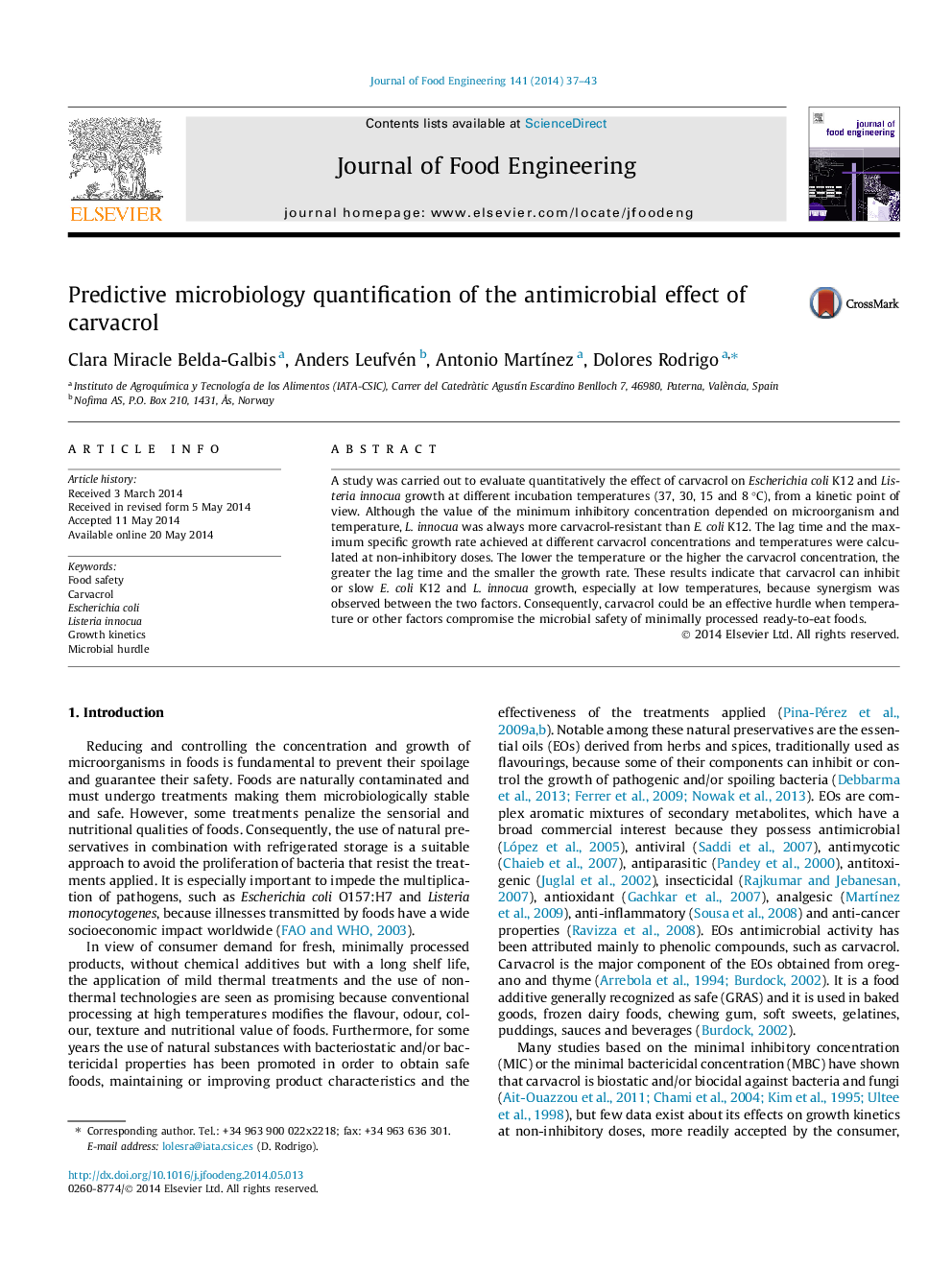| Article ID | Journal | Published Year | Pages | File Type |
|---|---|---|---|---|
| 6665719 | Journal of Food Engineering | 2014 | 7 Pages |
Abstract
A study was carried out to evaluate quantitatively the effect of carvacrol on Escherichia coli K12 and Listeria innocua growth at different incubation temperatures (37, 30, 15 and 8 °C), from a kinetic point of view. Although the value of the minimum inhibitory concentration depended on microorganism and temperature, L.innocua was always more carvacrol-resistant than E.coli K12. The lag time and the maximum specific growth rate achieved at different carvacrol concentrations and temperatures were calculated at non-inhibitory doses. The lower the temperature or the higher the carvacrol concentration, the greater the lag time and the smaller the growth rate. These results indicate that carvacrol can inhibit or slow E.coli K12 and L.innocua growth, especially at low temperatures, because synergism was observed between the two factors. Consequently, carvacrol could be an effective hurdle when temperature or other factors compromise the microbial safety of minimally processed ready-to-eat foods.
Related Topics
Physical Sciences and Engineering
Chemical Engineering
Chemical Engineering (General)
Authors
Clara Miracle Belda-Galbis, Anders Leufvén, Antonio MartÃnez, Dolores Rodrigo,
